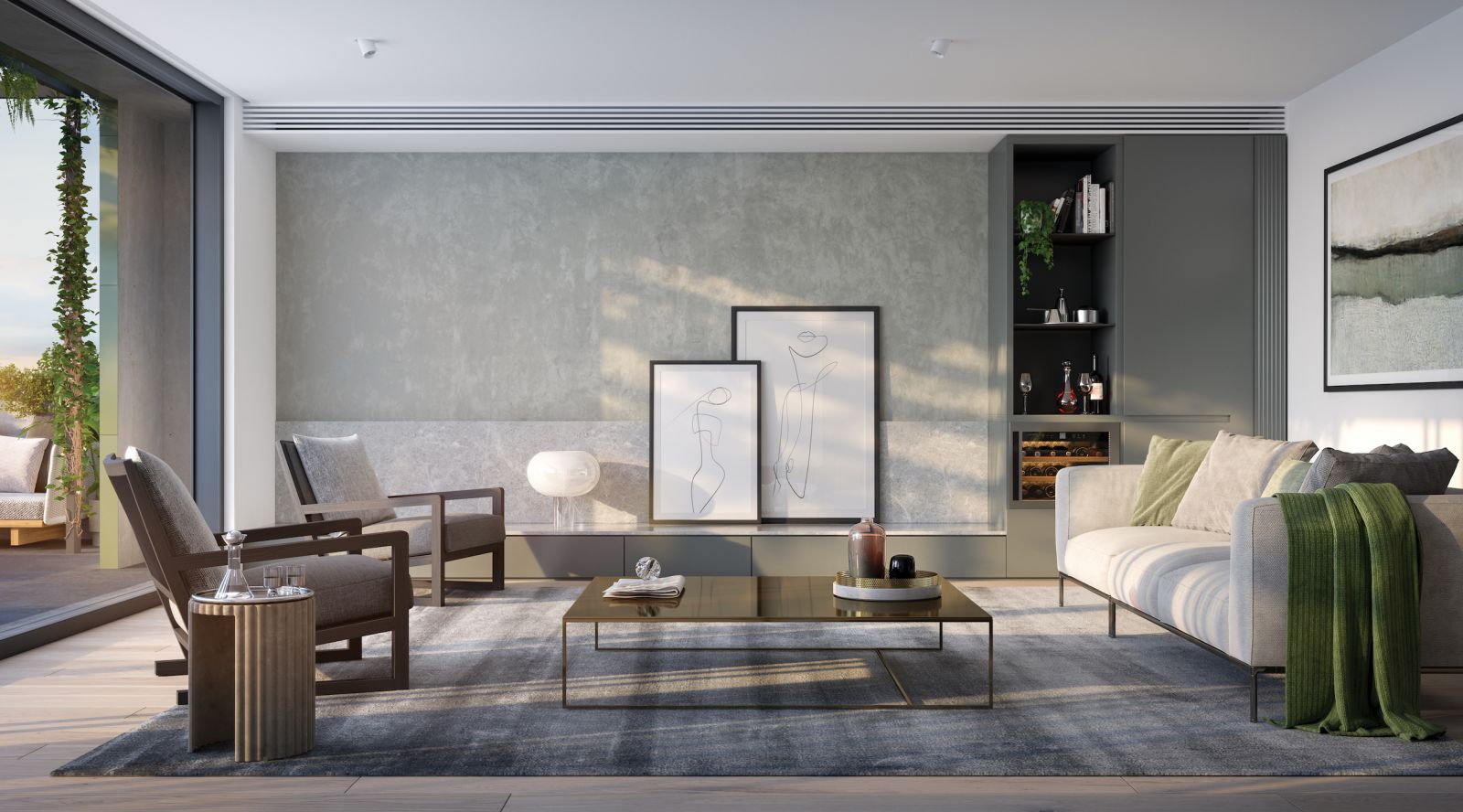Buying off the plan: What to know – and what’s in it for you
Buying ‘off the plan’ means buying a property before it’s built. It sounds unorthodox, but there are real benefits to this ownership option.
As with any big purchase, however, it’s essential to brush up on the details so you can navigate the process with confidence.
Here, our very own Julian Millman (Director of Gary Peer Projects) illuminates the off-the-plan process. What are its advantages? Its caveats? And what questions do you need to be asking?
The many advantages of buying off the plan
Auctions can be an exhilarating part of buying an established property. But if you don’t exactly thrive on competition, good news: there are no auctions when you buy off the plan.
“All off-the-plan sales are private,” Julian explains. “If the place is available, it can be bought – and the price is fixed. There’s very little competition.”
Off-the-plan properties are also fitted with premium appliances and modern fittings and fixtures. They’re beautiful, carefully designed living spaces – and you can have your say in those design and layout choices, too.
“Most developers will let you customise your property to your requirements. You generally can’t change the external structures. But internally, there is plenty of room for changes.”
And if you’re buying an apartment, you can rest assured that your new home will be safer and more precise than any older apartment. That’s thanks to VicGov’s Better Apartments Design Standards (BADS).
Don’t let the acronym throw you. The BADS initiative is a good thing. Launched in 2018, it updated Melbourne’s planning rules: making the city’s new apartments safer, greener and more appealing.
“Apartments that are BADS compliant meet very strict living standards,” Julian continues. “They aren’t the same as apartments built five or six years ago.”
To top it off, all off-the-plan properties come with 7-year to 10-year building warranties.
Excited by the possibilities? There are plenty of reasons to buy off the plan. So, to help you get the most out of your (potential) off-the-plan purchase, let’s talk logistics.

Research, research, research
There’s one obvious obstacle when it comes to buying off the plan: the place doesn’t actually exist yet. So thorough research is essential.
Julian’s tip? Start by looking into the developers and builders involved in the project.
“The developers should have a good track record,” says Julian. “That’s crucial.”
Make sure your developer has:
- Finished projects on time (and to budget)
- Received positive feedback
- Delivered what they promised
“As for builders,” Julian continues, “they’re not always appointed at the start of the project. But you can usually ask the developer which builders will be involved and look them up from there.”
Most property listings will feature some information about the developer, and you can always visit its website. But to do a deep dive, you can use a free off-the-plan research platform such as Urban.
Urban aggregates projects in the area you search and shows you detailed information about the people involved. (Developers, architects and builders, if they’ve been appointed.)
“It’s important to have confidence in the people behind the project. Quality research will help you achieve that.”
Get clear on your finances
There are big financial incentives to buying off the plan – especially for first-home buyers. Chief among them? Stamp-duty concessions.
“Generally, first-home buyers won’t pay stamp duty on off-the-plan properties,” Julian explains. “That might extend to purchases as much as $1 million.”
But there is one caveat: you’re only eligible for the concession if the home will be your principle place of residence (PPR). (Head to the State Revenue Office’s website for more info.)
Another thing to consider is that you can’t buy ‘subject to finance’ when you buy off the plan. That means, as Julian explains, “you need to be confident that you’re able to borrow the amount you’re spending.”
“Getting a mortgage from a bank can be challenging, since they can’t value something that doesn’t exist yet,” Julian says. “Since the period of the contract is so long, you should really get indicative approval.”

Review the contract with care
The processes of buying an established property and an off-the-plan property are similar in certain ways. You still pay a 10% deposit and sign a contract. But since an off-the-plan home is delivered in the future, that contract is quite unique.
“The contract looks very different, because there are no titles when you buy off the plan. You’re buying a lot number, not an address.”
As a reminder, a title holds a property’s legal details – like the owner’s name – and is issued once settlement is complete.
Knowing the settlement date is essential. Standard contracts will specify a settlement date, while off-the-plan contracts indicate a timeframe alone.
They’ll usually also request that settlement take place within a fortnight of the project being completed.
“Completion might be in three months, six months, a year, two years… It depends on the project,” says Julian.
Be clear on the completion date from the beginning so you can plan accordingly and ensure you pay on time. That means you won’t be hit with penalty interest! And you can daydream about your new property in peace.
Ultimately, you’ll get the most clarity on your off-the-plan contract with good legal advice. Some Australian lawyers even specialise in off-the-plan contracts.
To be as prepared as possible, we’d recommend seeking them out.
Ask questions – and have patience
There are so many advantages to buying off the plan. You can’t see or touch the property yet, but virtual-reality walkthroughs and design materials will give you a solid idea of the finished product.
Still, we always recommend getting as much clarity as possible before locking in your brand-new property.
“You’ve got to ask the right questions,” Julian notes. “Ask whether white goods are included. Ask what customisations you can make. And ask for everything in writing.”
Julian’s final tip? Have patience.
“You need to have some time up your sleeve and not be in any hurry,” he says. “Patience and preparation will take you a long way.”
Interested in buying an off-the-plan property? Or just want to learn more? Head to Gary Peer Projects to explore our latest exciting developments.